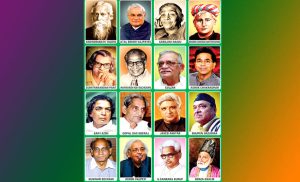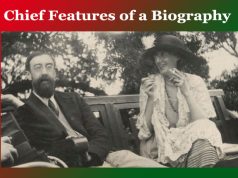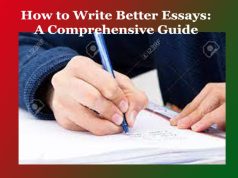Origin and Development of Indian English Poetry
Origin and Development of Indian English Poetry
Origin and Development of Indian English Poetry
Introduction:
Indian English poetry has evolved as a vibrant and distinctive literary tradition, reflecting the intersection of diverse cultures, languages, and historical contexts on the Indian subcontinent. From its nascent stages to the present day, Indian English poetry has undergone a fascinating journey, shaped by a confluence of indigenous influences and global literary currents. In this article, we explore the origin and development of Indian English poetry, tracing its trajectory from the colonial period to the contemporary era.
Colonial Beginnings (18th-19th Century):
The roots of Indian English poetry can be traced back to the British colonial period, when English became a significant medium of expression. Early poets like Henry Derozio and Toru Dutt emerged as pioneers, blending Western literary forms with Indian themes. Derozio’s “The Fakeer of Jungheera” and Dutt’s “Sita” exemplify the fusion of English poetic traditions with Indian cultural motifs during this period.
The Bengal Renaissance and Tagore (19th-20th Century):
The Bengal Renaissance marked a cultural revival in the 19th and early 20th centuries, with poets like Rabindranath Tagore contributing significantly to Indian English poetry. Tagore, a Nobel laureate, employed a lyrical and philosophical style, epitomized in his collection “Gitanjali.” Tagore’s poetry transcended linguistic boundaries and resonated with universal themes of love, nature, and spirituality.
Independence and Post-Independence Era (1947 Onwards):
The post-independence period witnessed a surge in Indian English poetry, as poets grappled with the complexities of a newly formed nation. Nissim Ezekiel, A.K. Ramanujan, and Dom Moraes emerged as prominent voices. Ezekiel’s “Night of the Scorpion” and Ramanujan’s “A River” reflect a nuanced engagement with Indian cultural and social landscapes.
The Modernist Phase (1960s-1980s):
The 1960s and 1970s saw a shift towards modernism in Indian English poetry, influenced by global literary movements. Kamala Das, known for her bold and confessional poetry, and Agha Shahid Ali, a prominent Kashmiri-American poet, contributed to the evolving landscape. Das’s “An Introduction” and Shahid’s “The Beloved Witness: Selected Poems” mark this period’s exploration of identity and self-expression.
Feminist Voices and New Poetics (1980s-2000s):
The late 20th century witnessed the emergence of feminist voices in Indian English poetry. Poets like Eunice de Souza and Arundhathi Subramaniam challenged traditional norms and addressed gender issues. De Souza’s “Marriages are Made” and Subramaniam’s “Where I Come From” exemplify the feminist discourse within the genre.
Contemporary Diversity (21st Century Onwards):
In the 21st century, Indian English poetry has seen an explosion of diverse voices, styles, and themes. Poets like Jeet Thayil, Meena Kandasamy, and Tishani Doshi have garnered international acclaim. Thayil’s “These Errors Are Correct” and Kandasamy’s “Touch” reflect the contemporary milieu and the exploration of identity, globalization, and socio-political concerns.
Conclusion:
The origin and development of Indian English poetry have been a dynamic and multifaceted journey, evolving through various phases and responding to the changing socio-cultural landscape of India. From the colonial period to the present, Indian English poets have crafted a rich tapestry of verse that not only reflects the diversity of the nation but also contributes to the global discourse on literature. As new voices continue to emerge, the trajectory of Indian English poetry remains an ongoing narrative, shaped by the complexities and resonances of a vibrant and ever-evolving society. 0 0 0.
Origin and Development of Indian English Poetry
Critical Essays on Some Indian English Poetry
- Henry Derozio’s ‘Poetry’- A Critical Analysis
- Henry Derozio’s Sonnet ‘To the Moon’-An Analytical Study
- Henry Derozio’s ‘Song’ -A Critical Analysis
- Henry Derozio’s ‘Song of the Hindustanee Minstrel’-A Critical Analysis
- Henry Derozio’s Poem ‘Chorus of Brahmins’- A Critical Analysis
- Henry Derozio’s ‘Harp of India’-A Critical Analysis
- Henry Derozio’s Poem, ‘To the Pupils of Hindu College’-A Critical Analysis
- Ramesh Chunder Dutt’s Poem ‘Night of Slaughter: Duryodhan’s Death’ -A Critical Analysis.
- Ramesh Chunder Dutt’s Poem ‘Sita Lost’ – A Critical Analysis
- Ramesh Chunder Dutt’s Poem ‘Buddha’s Death’-A Critical Study
- Greece Chunder Dutt’s Poem ‘Samarsi’-A Critical Analysis
- Brajendra Nath Seal’s Poem ‘Nature Unveiled’-A Critical Analysis
- Brajendranath Seal’s Poem ‘The Rime of the Wizard Knight’-A Critical Analysis
- Brajendranath Seal’s Poem ‘ An Ancient Hymn’-A Critical Analysis
- Michael Madhusudan Dutt’s Poem ‘King Porus: A Legend of Old’-A Critical Analysis
- Michael Madhusudan Dutt’s Poem ‘Satan’- A Critical Analysis
- Michael Madhusudan Dutt’s Poem ‘The Captive Ladie’- A Critical Analysis
- Ram Sharma’s Poem ‘Bhagobati Gita’-A Critical Analysis
- Ram Sharma’s Poem, ‘Music and Vision of the Anahat Chakram’-A Critical Analysis
- Ram Sharma’s Poem ‘ In Memory of Swami Vivekananda’ -A Critical Analysis
- Ram Sharma’s Poem ‘Lines Addressed to James Skibblerus’ -A Critical Analysis
- Kasiprasad Gosh’s Poem ‘ The Shair’s Farewell Song’-A Critical Analysis
- Kasiprasad Gose’s Poem ‘ To a Dead Crow’ – A Critical Analysis
- Kasiprasad Gose’s Poem ‘To a Young Hindu Widow’ -A Critical Analysis
- Nizamat Jung’s Poem ‘Soul-Weariness’: A Critical Analysis
- Nizamat Jung’s Poem ‘Prologue’-A Critical Analysis
- Nizamat Jung’s Poem ‘Spirit of Light’-A Critical Analysis
- Nizamat Jung’s Poem ‘Golconda at Sunset’-A Critical Analysis
- Sri Aurobindo’s Poem ‘Rose of God’ -A Brief Comment
- Sri Aurobindo’s Poem ‘Trance of Waiting’-A Brief Comment
- Sri Aurobindo’s Poem ‘Thought the Paraclete’-A Critical Analysis
- Sri Aurobindo’s Poem ‘Revelation’ – A Critical Analysis
- Sri Aurobindo’s Poem ‘Transformation’ -A Critical Analysis
- Toru Dutt’s Poem ‘Lakshman’ -A Critical Analysis
- Toru Dutt’s Poem ‘Our Casuarina Tree’ – A Critical Analysis
- Toru Dutt’s Poem ‘The Lotus’-A Critical Analysis
- Toru Dutt’s Poem ‘A Mon Pere’- A Critical Analysis
- Swami Vivekanand’s Poem ‘The Cup’ A Critical Analysis
- Swami Vivekanand’s Poem ‘Peace’ A Critical Analysis
- Swami Vivekanand’s Poem ‘Kali the Mother- A Critical Analysis
- Anilbaran’s Poem ‘My Beloved’-A Critical Analysis
- Manmohan Gose’s Poem ‘London’-A Critical Analysis
- Manmohan Gose’s Poem ‘The Garden Passion’-A Critical Analysis
- Manmohan Ghose’s Poem ‘Poplar, Beech and Weeping Willow’- A Critical Analysis







